Abstract
Biomedical informatics includes the application of computers, information networks and systems, and a growing body of scientific understanding to a range of problems. As skill in this field increases and as progress in virtually all modern biomedical science becomes more data intensive, informatics becomes a precious resource. Applications areas include access to knowledge, discovery in genomics, medical records, mathematical modeling, and bioengineering. At the same time, progress in informatics is deeply dependent on resolution of four major public policy issues: digital intellectual property rights, genetic testing protection, medical data privacy, and the role of biomedical data in the context of information warfare and homeland security.
Full text
PDF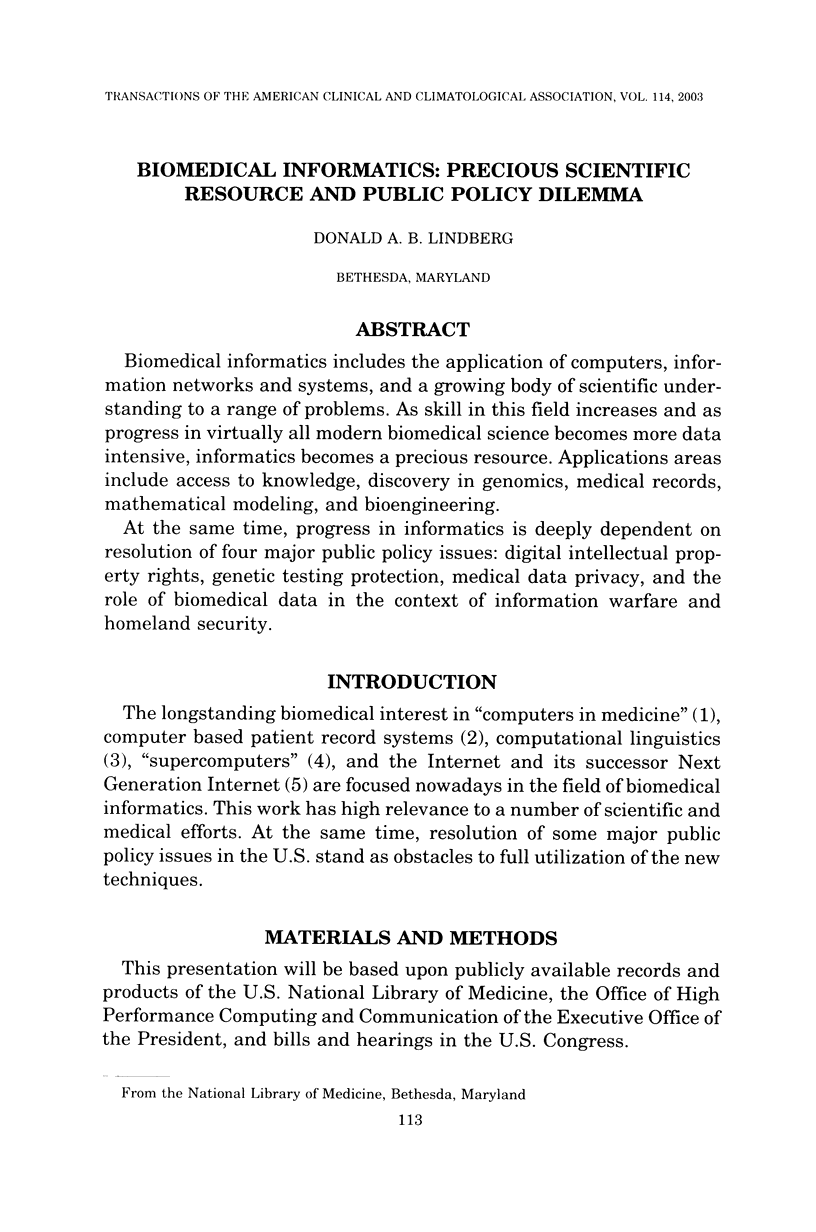
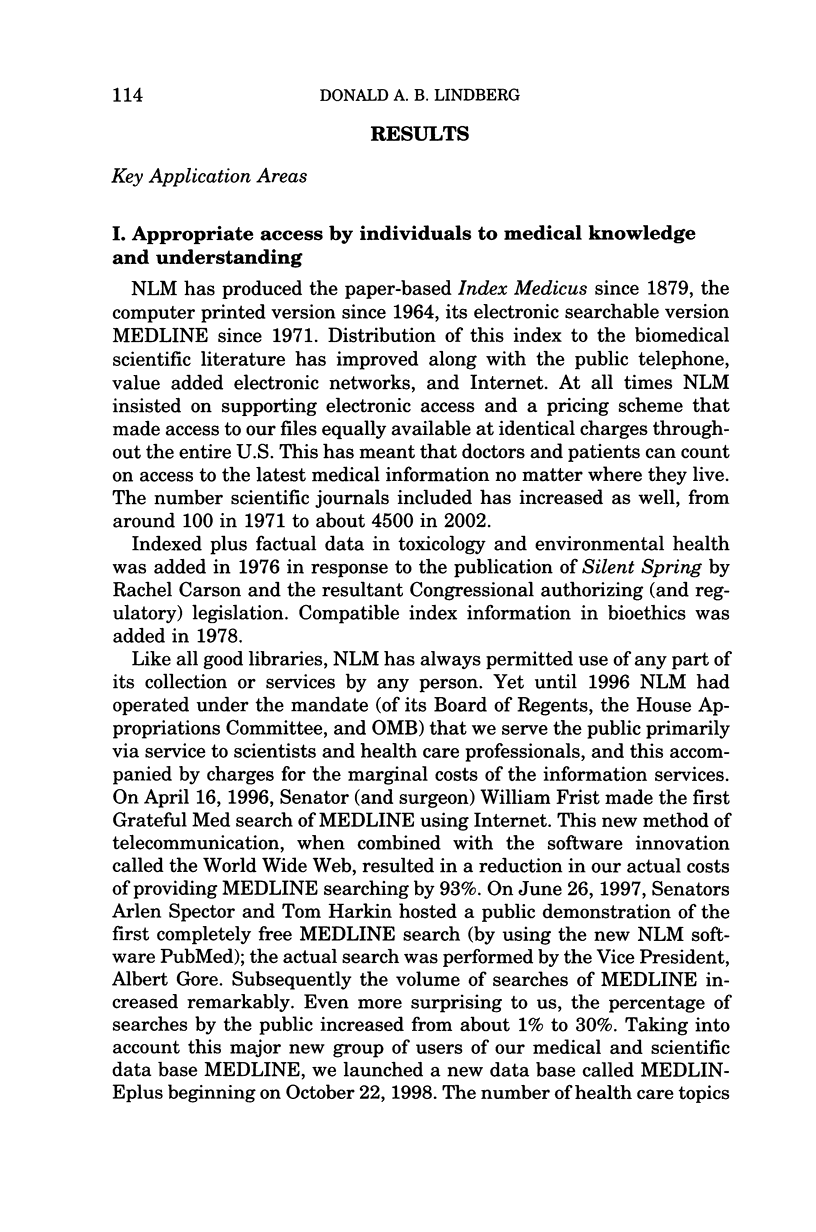
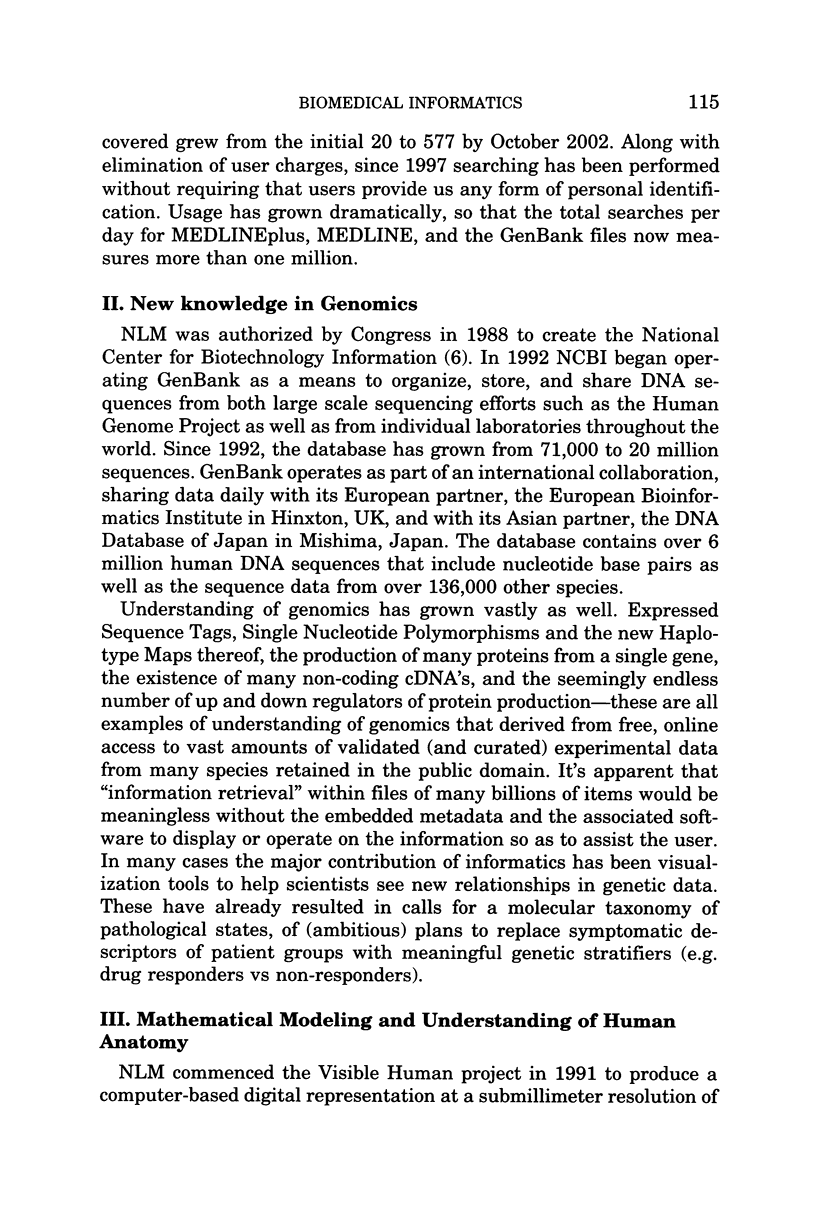
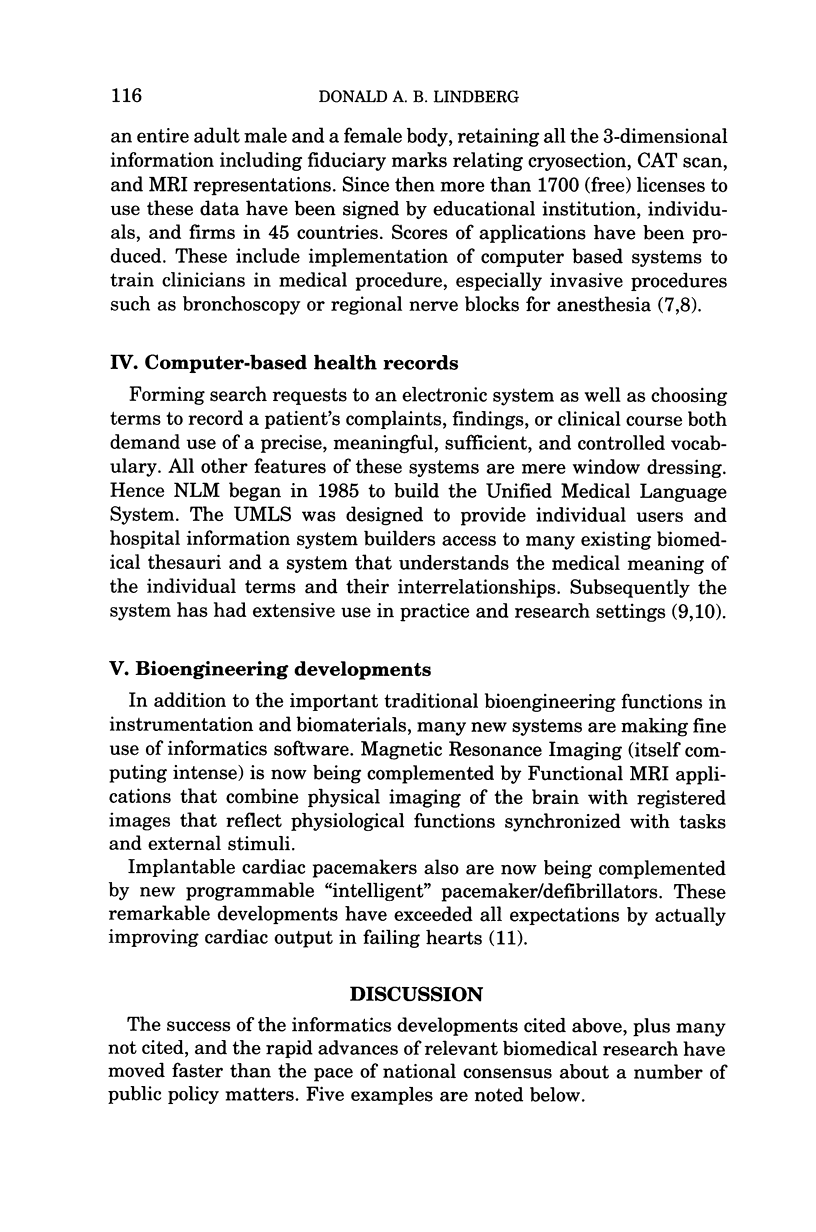
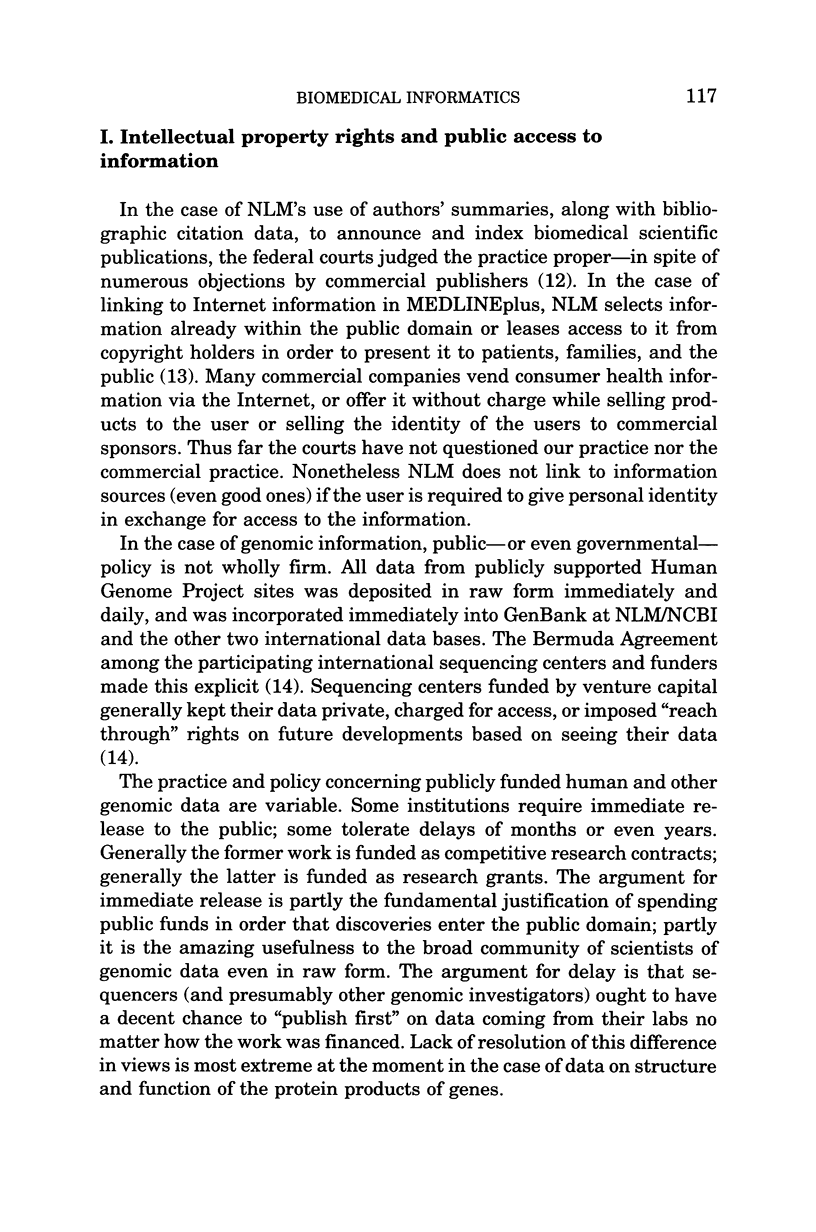
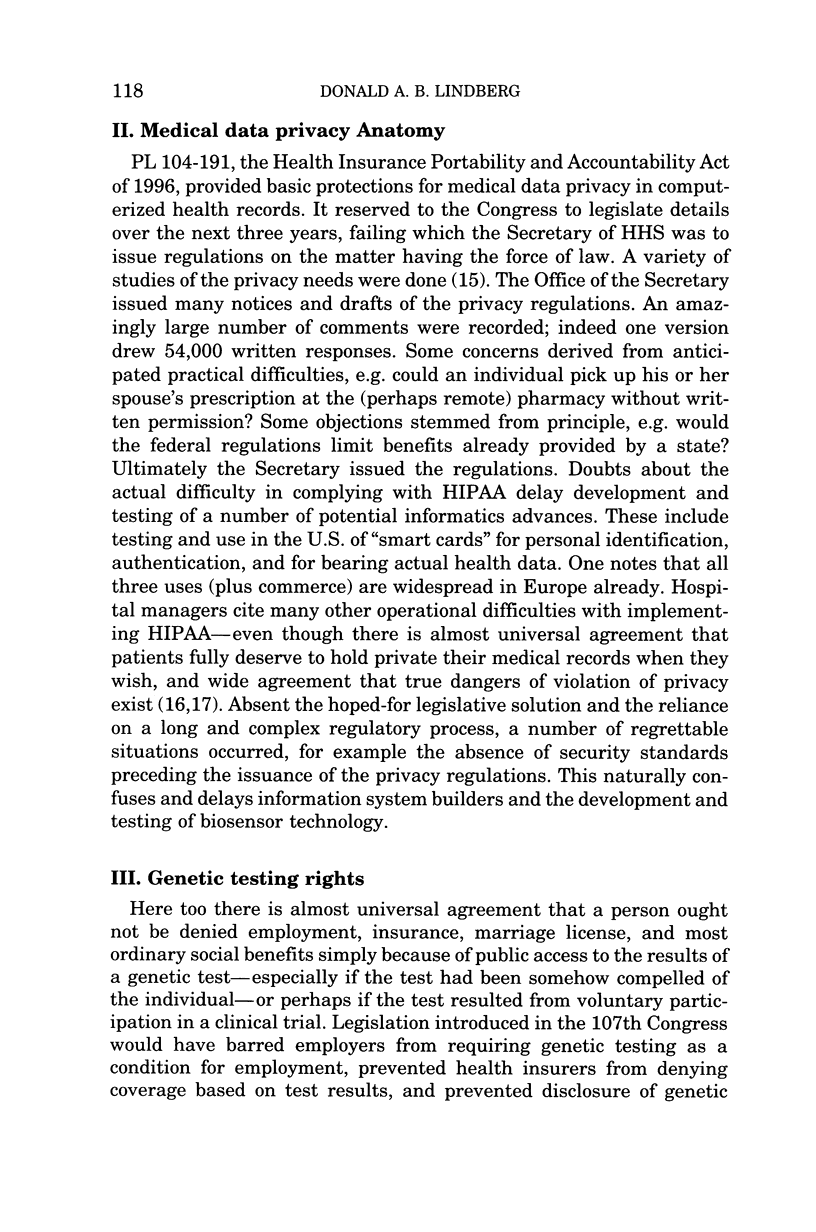
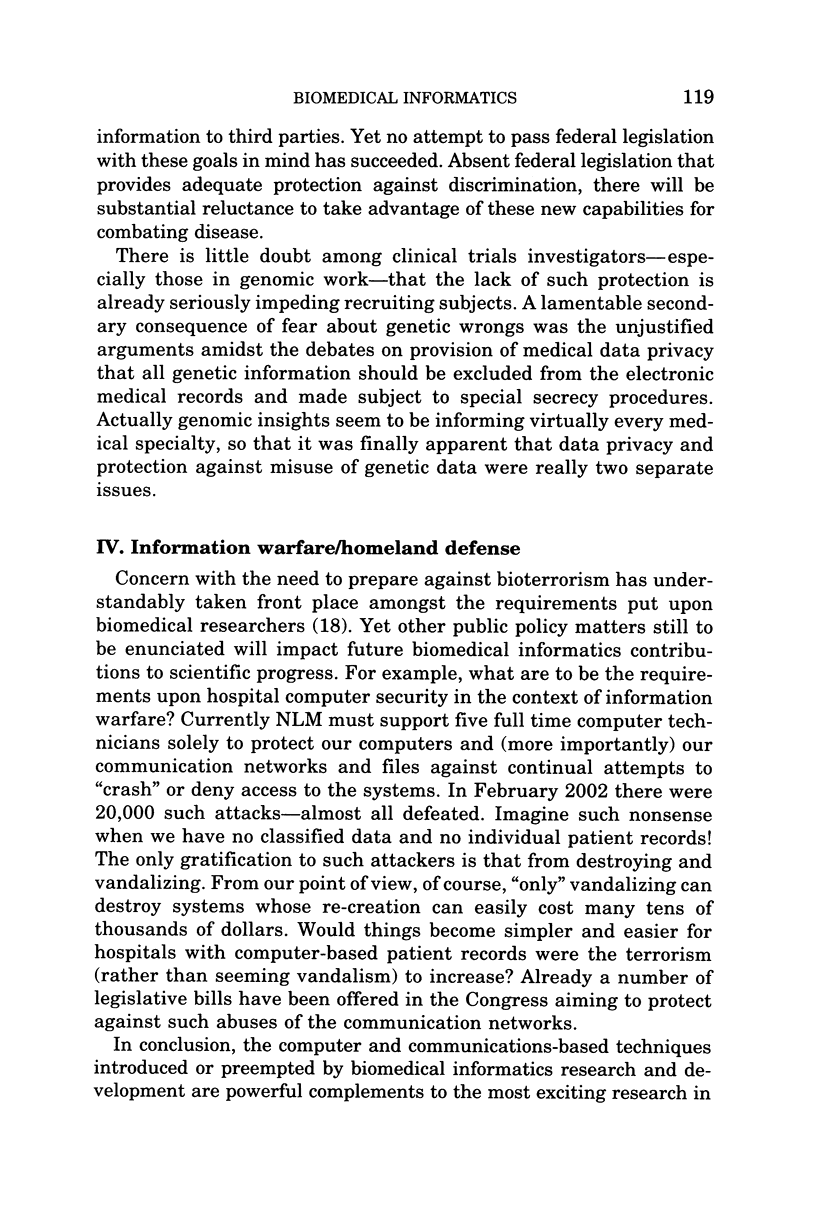
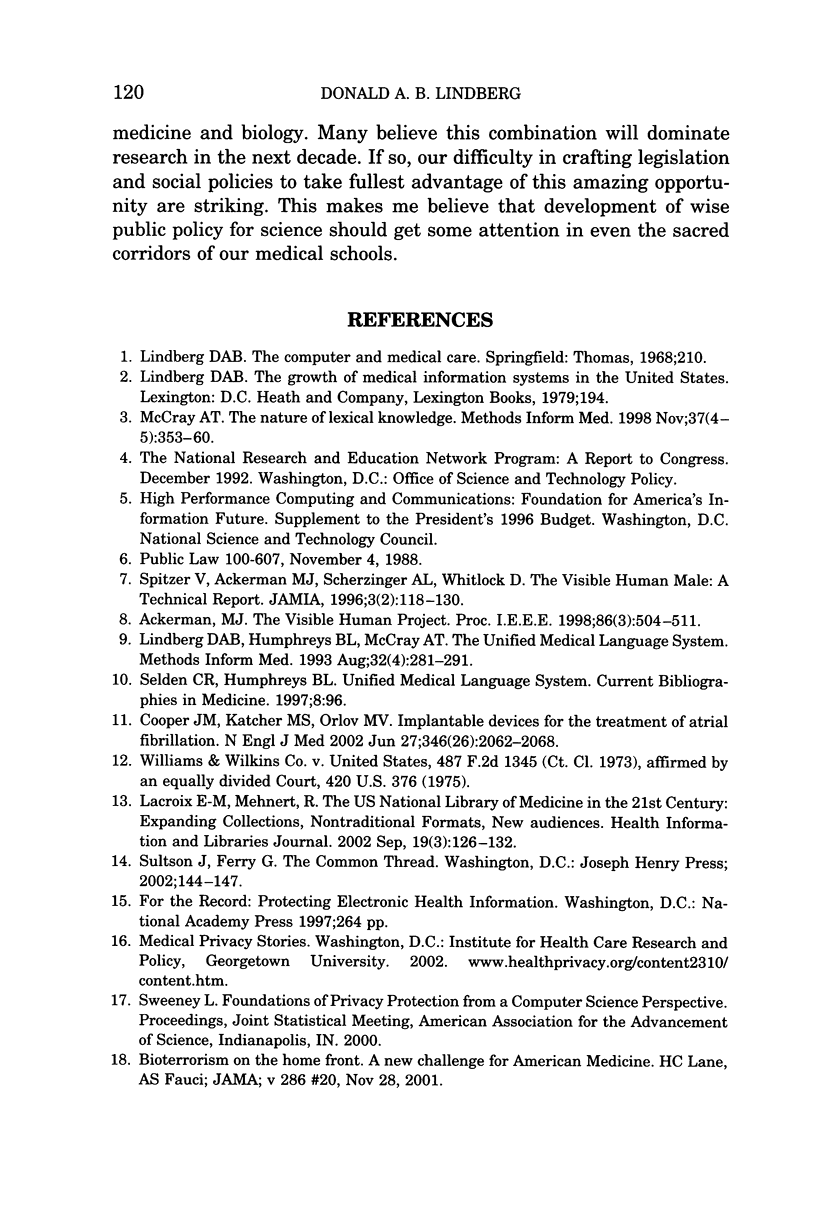
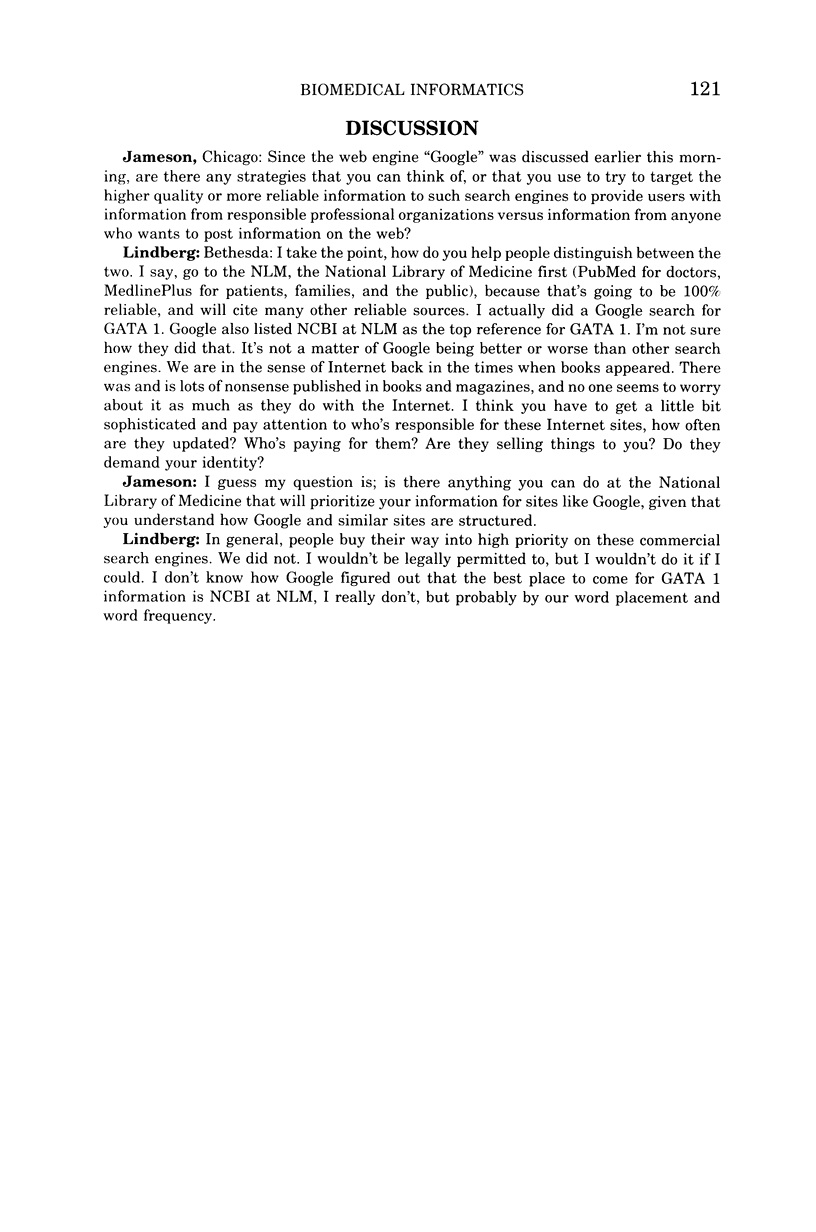
Selected References
These references are in PubMed. This may not be the complete list of references from this article.
- Cooper Joshua M., Katcher Michael S., Orlov Michael V. Implantable devices for the treatment of atrial fibrillation. N Engl J Med. 2002 Jun 27;346(26):2062–2068. doi: 10.1056/NEJMra012144. [DOI] [PubMed] [Google Scholar]
- Lacroix Eve-Marie, Mehnert Robert. The US National Library of Medicine in the 21st century: expanding collections, nontraditional formats, new audiences. Health Info Libr J. 2002 Sep;19(3):126–132. doi: 10.1046/j.1471-1842.2002.00382.x. [DOI] [PubMed] [Google Scholar]
- Lindberg D. A., Humphreys B. L., McCray A. T. The Unified Medical Language System. Methods Inf Med. 1993 Aug;32(4):281–291. doi: 10.1055/s-0038-1634945. [DOI] [PMC free article] [PubMed] [Google Scholar]
- McCray A. T. The nature of lexical knowledge. Methods Inf Med. 1998 Nov;37(4-5):353–360. [PubMed] [Google Scholar]
- Spitzer V., Ackerman M. J., Scherzinger A. L., Whitlock D. The visible human male: a technical report. J Am Med Inform Assoc. 1996 Mar-Apr;3(2):118–130. doi: 10.1136/jamia.1996.96236280. [DOI] [PMC free article] [PubMed] [Google Scholar]


